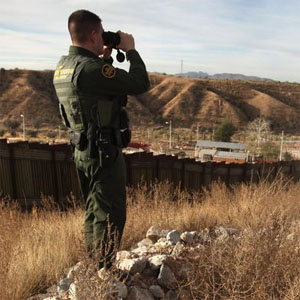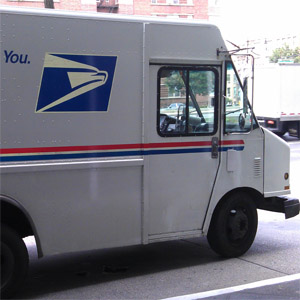
Oscar
Charleston, SC
Male, 31
Spent a bit over four years (2006-2010) serving as a Border Patrol Agent in Tucson Sector, AZ: the busiest sector in the country. Worked numerous positions, and spent the last year and a half operating/instructing ground radar installations. Duties included: field patrols, transport, processing, control room duties, transportation check, checkpoint operations, static watch duties, etc.
The U.S./Mexico international border is extremely porous. While on paper the entire border is monitored, the reality is that our capacity to deter/intercept all of the illegal traffic is mediocre at best. Judging by the traffic patterns I saw, I would estimate my station/sector's capability at perhaps 30% of the overall traffic is intercepted effectively.
I've never even heard of an ICE locator, but as ICE deals with internal immigration handling, if they have a locator it will only contain illegals who are serving jail time for other crimes. The BP does not keep an active record of people in custody since most illegals are returned within 24 hours.
If someone is killed along the border (bandits, cartel etc.) the body will be handled by the local police department as with any other homicide. If the person has no identification or records then they'll be buried without identity. This is pretty common, as many people who die in the desert are consumed by wildlife within 24-36 hours, so identification becomes nearly impossible unless identification is carried by the person.
If a citizen of another country is found dead, and identified then the police department will likely contact their country of origin an attempt to locate relatives.
Yes.
Not at all. Stolen vehicles are cheap and disposable. We used to capture dozens of stolen vehicles per week. It's also why car insurance is incredibly high in the South West compared to other parts of the country (especially if you own a full size pickup truck). They are also very fond of using rental cars (obviously with no intention to return them).
If they get chased, they'll just get away if they can and then bail out. It's far too expensive/time consuming to use properly purchased vehicles. The vehicles we're talking about are used for delivering large amounts of weed being shipped to local stash houses. When they are talking about dispersal, they're not talking about normal street dealers. These vehicles would be loaded with 1500-2000 lbs. of weed each.
Sometimes they even drive these vehicles in pairs or trios. There are tons of small-time cartel lackeys in Phoenix, Tucson etc. who's job is solely to steal vehicles and bring them down to the border, stash them in the desert for use by drivers.
Literary Scout
 Can a novelist achieve huge success through self-publishing?
Can a novelist achieve huge success through self-publishing?
Professor
 Are professors really subject to the "Publish or Perish" policy?
Are professors really subject to the "Publish or Perish" policy?
Parcel Delivery Mailman
 Does labeling a package "fragile" actually lead to you handling it with more care?
Does labeling a package "fragile" actually lead to you handling it with more care?
Never worked with the US Marshals. You could apply direct to the Marshals though, unless you don't believe you have the resume to do so.
I have no idea. The exam is made for people who have no prior Border Patrol experience, so I am not sure you'd have a big advantage.
No.
-OR-
 Login with Facebook
Login with Facebook (max 20 characters - letters, numbers, and underscores only. Note that your username is private, and you have the option to choose an alias when asking questions or hosting a Q&A.)
(A valid e-mail address is required. Your e-mail will not be shared with anyone.)
(min 5 characters)
By checking this box, you acknowledge that you have read and agree to Jobstr.com’s Terms and Privacy Policy.
-OR-
 Register with Facebook
Register with Facebook(Don't worry: you'll be able to choose an alias when asking questions or hosting a Q&A.)